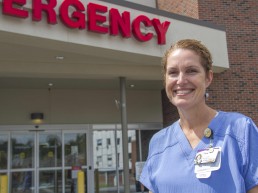At UPMC, we know that we are better together than we are apart. From the hospital room to the hallways of our offices, we approach challenges as a team and lean on the strengths of those around us to ensure that our patients and communities are receiving the highest level of care.
One area where this approach shines brightly is in the field of Behavioral Health care. Mental health and mental illness can be complicated and multifaceted, and it takes more than just one person, one caregiver, or one approach to ensure that the unique needs of our Behavioral Health patients are being met. Together, we each bring our backgrounds, expertise, strengths, and experiences to the table to form a strong and capable team.
For one Peer Specialist on our team, her approach to her work comes from a deeply personal place. “Western Psychiatric Hospital saved my life twice, and now it is my time to give back! My role provides me with opportunities to share my lived experience with patients to provide hope and support while I continue to learn, grow, and thrive in my own recovery,” she shared. “The communication and support I get from the staff is amazing and I am so grateful. We always approach patients with kindness, patience, dignity, and respect, and we aim to convey language of hope, optimism, and positivity that supports and promotes a culture of recovery.”
Let’s meet some of the other employees who make up our team of Behavioral Health caregivers and hear from them about how their roles play a part in this essential work:
Across UPMC and every other health care system, clinical workers have been standing bravely on the frontlines of care throughout the COVID-19 pandemic, providing critical patient care to those in need. Those health care heroes have not been alone, though. Standing right behind them have been many other less visible teams, hard at work keeping our systems running without a hitch and ensuring that clinical workers have all the support they need to focus on what they do best.
One of the teams that played a critical role in UPMC’s pandemic response is Information Technology. You might not initially think of IT as a team that was impacted by COVID-19, but the truth is that their work has become even more essential than before.
Because of the diligent work of our people across PC Support, Remote Access, Certify, EPCS, and more, our Information Technology team transitioned seamlessly to working from safe and socially distanced locations without missing a beat. They accelerated the technology that allowed patients to receive care remotely, implemented digital solutions to make our hospitals safer, and quickly established vaccination clinics across our communities.
While this experience is not one our teams could’ve ever predicted, it has been a challenge that they’ve met with excellence. Let’s hear from some of the members of our team about their experience working in IT throughout the COVID-19 pandemic:
"We always approach patients with kindness, patience, dignity, and respect, and we aim to convey language of hope, optimism, and positivity that supports and promotes a culture of recovery.”
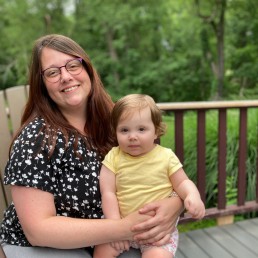
Emma W., Social Worker
“As an inpatient social worker at UPMC Western Psychiatric Hospital, my time is spent with patients as well as in active collaboration with their family and support systems. The inpatient team on CADD (Center for Autism and Developmental Disorders) includes social workers, nurses, milieu therapists, physicians, and more. We encourage very active communication with daily team meetings, and we get in touch with each other through the day as needed.
In my last community position, I found myself extremely burnt out, but I knew I wanted to continue working with this population, and I’d had a good experience working with Western Psych as an outside community provider. These factors led me to my current position at Western Psych. I find communication and collaboration within the hospital to be transparent and encouraged across the department no matter the hierarchy!”
James R., Behavioral Health Therapist
“I work in Behavioral Health because I find the work of engaging with families and facilitating sustainable change meaningful. Not only do I get to engage with families to facilitate meaningful growth, but I also have the honor of noticing the potential in other clinicians, coaching them to build their competencies, and hopefully producing more individuals who have the enthusiasm and competency to meet the complex needs of families, especially families like my own.
I have had the honor of working at UPMC for a total of 12 years. I recently returned after following my dream to work in private practice and another hospital system. Although my work during those 4 years was beneficial, I was very happy to return to UPMC for several reasons. What resonated with me was leadership understanding my dreams of leaving for private practice, supporting me during the transition, and making me feel valued on my way out. I was also told that the door was always open if I wanted to return — which I did!”

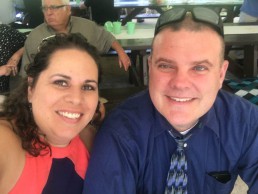
Gina H., Team Lead, Care Management
“In my role in Care Management, my team and I present the clinical information about why a patient needs to be treated to their respective insurance companies. We work with the nurses, social workers, physicians, and other members of the team to gather the clinical presentation of the patient, their treatment plan, barriers to discharge, discharge plan, and psychosocial information. We use that information to justify why the patient needs inpatient treatment and collaborate with the insurance to gather additional resources and services for the patient.
I choose to work in Behavioral Health because I’ve always wanted to help others. While I’m not currently working directly with patients, I still feel like my role is integral to their care.”
Bennie P., Milieu Therapist
“One of my roles [in my work as a Milieu Therapist] is to make sure that the unit is safe. I’m constantly meeting with patients, asking them if they need anything and how I can make the experience more positive for them. A lot of our patients don’t want to be there [in the hospital], and my role is to transition into a therapeutic alliance with them. Since I’ve been at Western Psych for 18 years, I know a lot of patients who frequent the hospital because of their severe mental illness. A lot of these patients burn bridges with their families, and we here at the hospital almost become their family. When they recognize me, they’re happy to see me because they trust me and we’ve already built that alliance.
I love working with people with severe mental illness. As odd as that may sound to some people, I really enjoy helping these people and guiding them to find a better fit to where they belong in society.
I can’t do my job successfully without the people behind me. We have a very cohesive team, and we all work very closely together. The teamwork is an integral part of our work here, and it’s what allows us to be successful with our patients.”


LaDawn M., Behavioral Health Therapist
“As an Outpatient Therapist, I work in Western Psychiatric Hospital’s STEP Clinic (Services for the Treatment of Early Psychosis). At our clinic, I am responsible for completing anywhere from one to three clinical intake assessments on a weekly basis, along with managing my therapy individuals that I see on a weekly, biweekly, or monthly basis depending on their stability and clinical need.
Teamwork in our clinic looks different than most. We collaborate very often with the psychiatrists, peer specialists, pharmacists, supportive employment/education specialists, psychologists, supervisors, nurses, and so many others. When we say communication is key, we really mean it – that is what keeps our clinic going. I am positive that finding a clinic with the support and teamwork like ours would be few and far between. The continued support and ongoing opportunities are endless!”
Tony T., Evaluator Clinician
“I chose to work in Behavioral Health because I have a genuine interest in helping people with the human experience and to help alleviate stigma when it comes to mental health issues.
I currently work in the Psychiatric Emergency Services (PES) as an Evaluator Clinician. I usually work the overnight shift so a typical shift for me varies when it comes to acuity. In my role I am evaluating patients as they come into the PES and coordinating with the doctors to figure out the best plan of care for the patient, whether it be getting them set up with outpatient services or getting them admitted to the hospital. Sometimes people come into the PES during the night just to talk, and that’s another thing we can help with, too.”

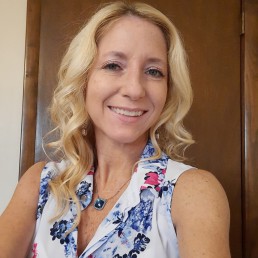
Summer T., Resource Coordinator
“As a Resource Coordinator, I deal with adults with mental health diagnoses, including many who also have drug and alcohol diagnoses. My team and I are the middlemen who connect our individuals to services that they need, whether that is meeting them at doctor’s appointments and explaining their options, attending attorney appointments with them, setting them up with other community resources like a food bank, and so much more. Advocating for our patients is a huge part of what we do, and I highly believe in that – I will advocate for my individuals until the end and help them use their voice.
My department has always been made up of a very close-knit group of coworkers, especially in Case Management. Our supervisors have our backs and are always there ready to listen if you need them. I’m so grateful that I’m doing what I am now, because it has without a doubt made me the person I am now. This role has opened my eyes to how this world is, and the trauma and the struggles that people go through. It has given me compassion, empathy, and humility, and I’ve never desired to turn back, because I’ve found my calling.”
Ingrid E., Behavioral Health Therapist
“I chose to work in Behavioral Health because I enjoy seeing people win in their lives. While the “win” is unique to the individual, it signifies the achievement of a meaningful and fulfilling life. I consider it an honor to be a part of a person’s health care team that is committed to aiding in the discovery, development, and mastery of personal strengths to positively cope with life’s challenges.
As an African American Woman of Color, I have been graced throughout my life, by strong role models of compassion, resilience, kindness and excellence. At UPMC, I have found a place that allows this grace to be put into action daily, and I have found a place that values and invests in my personal and professional development by creating spaces and opportunities that validate my voice and contributions.
Equally as important, my work at UPMC allows me the opportunity to serve as a role model for girls, women, and People of Color as a visual reinforcement and validation of our seat at the table and our belonging in professional spaces that provide mental and behavioral health treatment for communities of color and at large.”
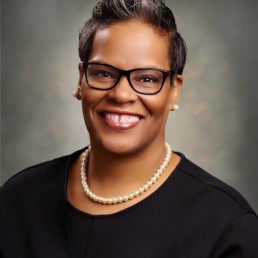
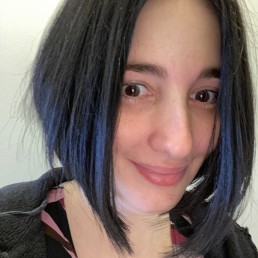
Beverly T., Crisis Clinician
“I work as a Crisis Clinician II at Resolve Crisis Services. I am cross-trained in all departments, and often I float from department to department, which I love. We do what we can to coordinate with outpatient providers to provide the best disposition plan that we can for those who present, call, or those we see in the community. We assist with linking clients to long-term providers depending on the level of care that they need. I love floating because there are clients who utilize all three departments, and it helps me get to know the people I serve, a lot better. I have always wanted to work with people in crisis and I could not figure out a better place to work with people in crisis other than resolve Crisis Services which serves as the Allegheny County Crisis Center. I really love my job.”
"This role has opened my eyes to how this world is...It has given me compassion, empathy, and humility, and I’ve never desired to turn back, because I've found my calling."
– Summer T., Resource Coordinator




